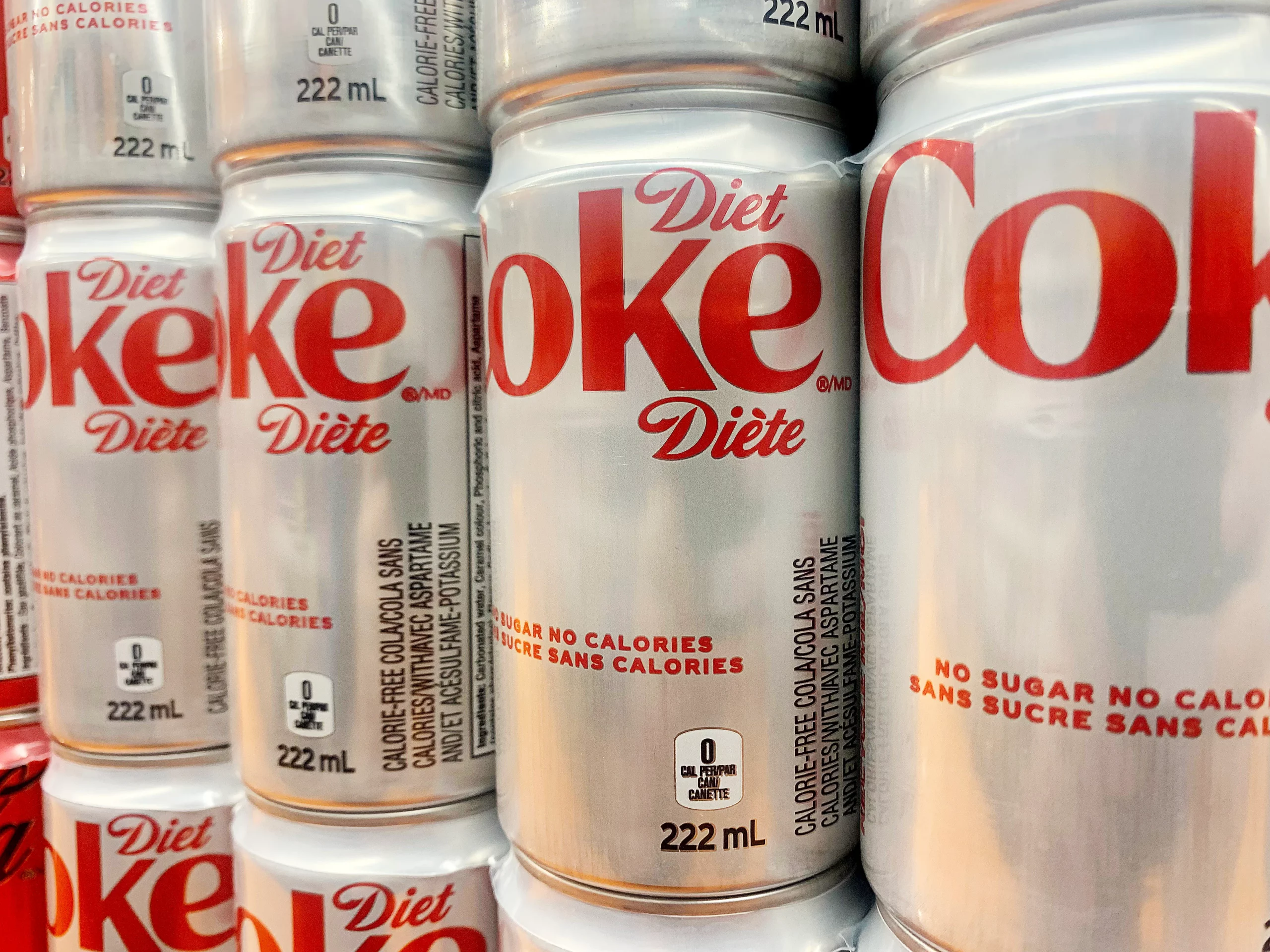An artificial sweetener found in numerous fizzy drinks, chewing gums, and low-calorie foods is set to be labeled as a potential cancer risk. Aspartame will be classified as “possibly carcinogenic to humans” in an upcoming reclassification by the World Health Organization (WHO). The decision follows an extensive safety review involving 1,300 studies conducted on this popular sugar replacement.
Aspartame, which entered the market in the 1980s, is used in various well-known products, including Diet Coke, Dr Pepper, Fanta, Extra chewing gum, Muller Light yogurts, toothpastes, dessert mixes, and sugar-free cough drops. This reclassification is expected to have far-reaching implications for the global food manufacturing market, impacting brands worldwide.
The increased focus on reducing sugar consumption over the past few decades has led to the widespread use of artificial sweeteners like aspartame. However, experts immediately raised doubts about the decision made by the International Agency for Research on Cancer (IARC), criticizing the classification system employed by the WHO’s subsidiary body as “dumb” and emphasizing the concept that “the dose makes the poison.” Cancer Research UK explicitly states that artificial sweeteners such as aspartame do not cause cancer.
Industry bodies have condemned the IARC review, calling the research “widely discredited” and asserting that it contradicts decades of high-quality evidence. Similar cancer warnings backed by the WHO, such as those concerning red meat, working overnight, and using mobile phones, have faced criticism for unnecessarily alarming the public about substances or situations that are difficult to avoid.
It is important to note that the IARC’s ruling, which has not yet been publicly announced, is intended to evaluate whether a substance poses a potential hazard based on all available published evidence. The ruling does not consider the safe consumption levels of a product by individuals.
The Joint WHO and Food and Agriculture Organization’s Expert Committee on Food Additives (JECFA), in conjunction with national regulators, provides guidance on safe consumption levels. JECFA is also conducting a review of aspartame usage and is expected to announce its findings simultaneously with the IARC’s decision on July 14.
Since 1981, JECFA has declared aspartame safe for consumption within accepted daily limits. For example, an adult weighing 132 pounds would have to consume between 12 and 36 cans of diet soda, depending on the aspartame content, every day to be at risk. This view has been widely shared by national regulators in the US and Europe.
(YWN World Headquarters – NYC)












6 Responses
This is ridiculous, they go back and forth all the time. It’s been on the market for 40 years (Since 1982) yet no one can point to a single person across the globe whose gotten cancer from this.
Virtually any food item if eaten to excess will give health problems.
Also I don’t know why they feel the need to blacken Coke’s name as if Pepsi is better? I just checked my fridge and the Pepsi 2 liter is also made with Aspartame (Equal). Yet all the news reports show coke pictures.
Can you believe anything WHO says. They fought for Covid shut downs and still refuse to acknowledge that China created and released this killer on the world
Aspartame was discovered as a sweetener by a soldier who accidentally licked some explosive powder that it eventually was extracted from. This eventually was heard by Donald Rumsfeld, the American general who pushed it to market despite overwhelming research showing it to be carcinogenic.
Also a tuna fish can think sometimes they can sell it for years after production but even if it is fresh nobody can say that nothing happens to the cells of the fish even though there supposedly is no air there it is possible that something invisible happens to the tuna fish cells same as eggs in cake
WHO is highly politicized, with a strong bias against the United States and against capitalism and countries that allow personal freedom. It is unfortunate that because of them, many stupid people will switch to high calorie drinks made with natural sweeteners (usually sugar), which will cause serious weight gain and the problems that causes. WHO, of course, takes no responsibility for its actions, and can not be sued for misleading people.
Coke is only one product that uses this, and specifically in its “diet” products, not the ones that use HFCS (sort-of-sugar).